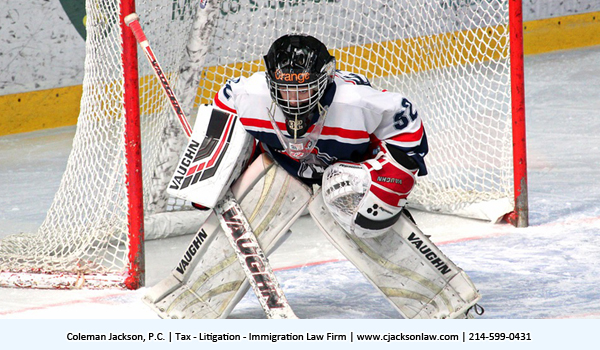By: Coleman Jackson, Attorney, Certified Public Accountant
December 16, 2019
Recently I came across a United States Tax Court memorandum decision dated November 25, 2019 involving a South Dakota farmer with a cutting horse and seed business. The issues in the case that struck me were (1) whether the taxpayer’s cutting horse activity was an activity “not engaged in for profit” within the meaning of Section 183 of the Internal Revenue Code, and (2) whether the taxpayer should be required to pay the accuracy-related penalties under Section 6662(a) of the Internal Revenue Code. The case was Lowell G. Den Besten, Petitioner v. Commissioner of Internal Revenue, Respondent, T.C. Memo 2019-154 (November 25, 2019). Note that Tax Court Memo decisions cannot be used as precedent by other taxpayers. So this blogs aim is to pull general observations from the Besten case because federal taxation and cutting horses is not just about the horses.
The taxpayer won on two of the three issues argued before the U.S. Tax Court. The significant thing for other individuals and businesses who find themselves tangled in a spirited horse race with the IRS is not whether they are in the cutting horse business or whether or not they are in the seed business. The significant points of this case are (a) the IRS holds a presumptive correctness in all tax deficiency matters, and (2) the taxpayer always bears the burden to prove that; more likely than not, they are entitled to the deductions claimed on their tax returns. That means that the taxpayer must always maintain and produce credible substantiation of all items recorded on their tax returns. This has been operative tax law governing IRS deficiency cases ever since the United States Supreme Court ruled on these two points in a pair of federal tax cases known as Welch v Helvering, 290 U.S. 111, 115 (1933) and New Colonial Ice Co., v. Helvering, 292 U.S. 435, 440 (1934). Guy Tressillain Helvering, a Democrat from Kansas was the Commissioner of the Internal Revenue of the Bureau of Internal Revenue from 1933 to 1943. This is the legacy agency of the Internal Revenue Service. Today, typically tax cases are styled “Taxpayer v. Comm’r”. Anyway, locks on doors are preparatory. Folks put locks on their doors to prepare for when the thief comes. The same way, taxpayer’s must collect, summarize, and maintain substantiation for all deductions claimed on their tax returns in the event the IRS examiner visits. In the 2019 Besten case, we see the U.S. Tax Court applying the rules established in the 1930s. In tax law and in law in general, predictability matters; there is little benefit of surprise, duplicity and uncertainty in law. Taxpayers can prepare and comply with the law if they know the applicable law because federal tax law is not just about the horses.
Internal Revenue Code Section 6662 permits the IRS to assess a 20% accuracy penalty on tax deficiencies. The accuracy-related penalties can be imposed by the IRS when tax deficiencies are due to the taxpayer’s negligence, recklessness or willful violations of the federal tax laws. In the Besten case, the taxpayer avoided paying the accuracy-related penalty because he was able to adequately convince the U.S. Tax Court that he acted reasonably and acted in good faith by relying on the professional advice of his tax professional. This is often a viable defense for the taxpayer who can meet the burden that they (a) relied on the advice of their tax professional, (b) their tax professional was competent and experienced, and (c) they gave their tax professional accurate and complete information and documentation regarding the tax issue. So this particular reasonable cause defense (reliance of the tax professional’s advice and guidance), like the other reasonable cause defenses that might be applicable, depends on all the facts and circumstances because federal taxation and cutting horses is not just about the horses. Reasonable cause defenses are not automatic relief; but like cutting horses, every reasonable defense should be explored when confronting additional taxes, penalties and interest, because cutting cost is another way of saving money.
This law blog is written by the Taxation | Litigation | Immigration Law Firm of Coleman Jackson, P.C. for educational purposes; it does not create an attorney-client relationship between this law firm and its reader. You should consult with legal counsel in your geographical area with respect to any legal issues impacting you, your family or business.
Coleman Jackson, P.C. | Taxation, Litigation, Immigration Law Firm | English (214) 599-0431 | Spanish (214) 599-0432



